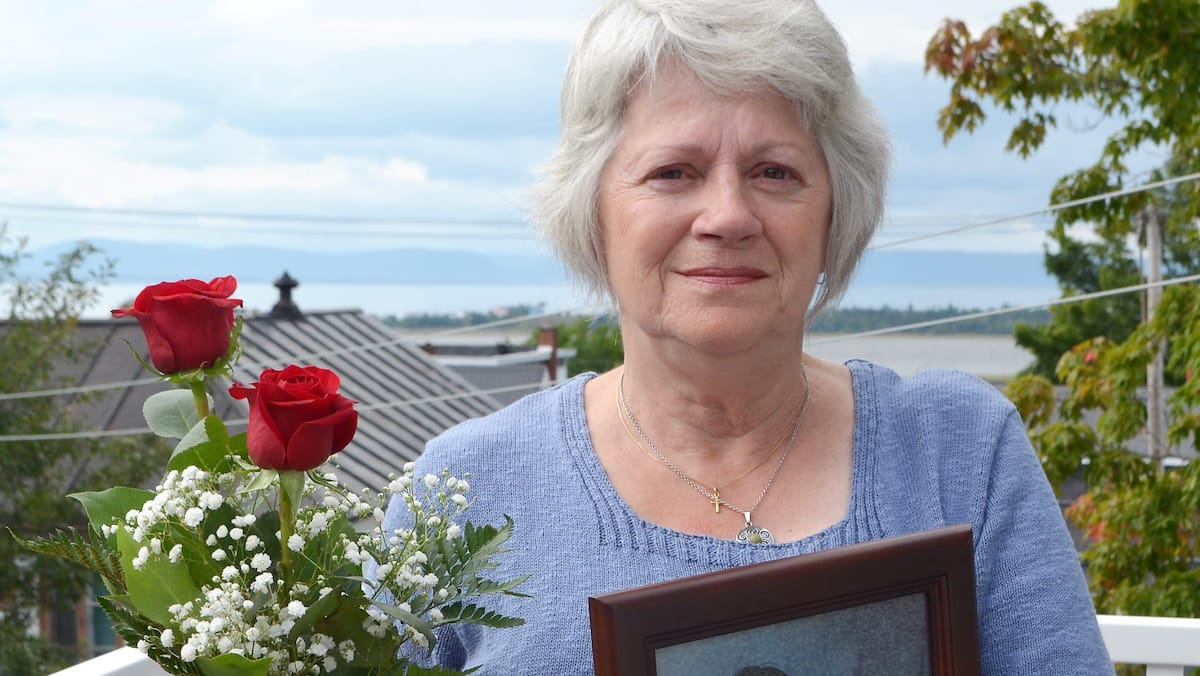A lady whose husband took his own life in a Montmagny hospital in May 2019, believes that he would still be alive if a succession of errors in the medical community had not been made.
“They were focused on trying to treat the disease, but forgot about the patient. And [mon conjoint] paid for it with his life. They took away what I had most dear … ”, confides Danielle Lafontaine in an emotional interview with The newspaper, almost a year and a half after the fatal event.
M’s spouseme Lafontaine, Bernard Blais, suffered from Parkinson’s and bipolar disorder, but her condition had been stable for years, she said.
Everything changed some time after the neurologist who followed Mr. Blais retired and a new one took over his file.
The coroner who investigated the death of the 61-year-old man was also questioned in his report on a change in medication requested by this other specialist doctor.
“The new neurologist […] questioned the diagnosis of Parkinson’s disease […] and suggested changes to the medication, ”writes coroner Jean Brochu.
Shortly after these changes, at the beginning of May 2019, Mr. Blais was rushed to the psychiatry department of Hôtel-Dieu de Montmagny. He was struggling with recurring suicidal thoughts which he associated with his change of medication.
Unfortunately, after a first failed attempt using his belt a few days earlier, Mr. Blais died of a strangulation with the wire of his breathing apparatus, on May 20, 2019, within the establishment itself. .
In his report, Dr. Brochu raises questions about Mr. Blais’ change of medication and recommends a review of his file, as well as a review of the care he received in the last months of his life.
But for Mme Lafontaine, of course, the damage has already been done.
“If there hadn’t been so many failures, he would still be near me …”, drops the 63-year-old woman about her husband of the past 18 years.
“Why did we change his medication? Why was he left his belt, despite his condition? Why has not we better supervised the use of its device when patients are not even entitled to have a telephone so that they do not choke on the wire? ”, She wonders. .
Through her testimony, Danielle Lafontaine hopes to educate the medical community to be more attentive to her patients. Her partner was crying for help, and we didn’t hear him, she says.
Asked about Mr. Blais’ treatment, the CISSS de Chaudière-Appalaches indicated that the health establishment itself recognized the problems in this case.
An action plan has been put in place to prevent such a situation from happening again.
Problems identified by the relatives of Mr. Blais:
-Inadequate medication change, when he had “the winning formula”.
-Poor supervision of his respiratory system in the psychiatry department.
-His belt was left with him when we knew he was suicidal.
-Delay during resuscitation due to poorly identified or difficult to access equipment.
Recommendation from the coroner:
-The CISSS de Chaudière-Appalaches should review Bernard Blais’s file.
-The College of Physicians of Quebec should examine the quality of the medical act and the care provided to Mr. Blais in the last months of his life.
Action plan the Hôtel-Dieu of Montmagny:
-Frame the use of breathing apparatus on the psychiatry unit.
-Ensure that resuscitation equipment is available and functional.
– Quickly indicate in the file whether there is consent to resuscitation.
 Canada Live NEWS – 24/7 Breaking Headlines & Updates Canada Live News is one of the largest news curating sites across Canada which is made exclusively for Canadian people.
Canada Live NEWS – 24/7 Breaking Headlines & Updates Canada Live News is one of the largest news curating sites across Canada which is made exclusively for Canadian people.
